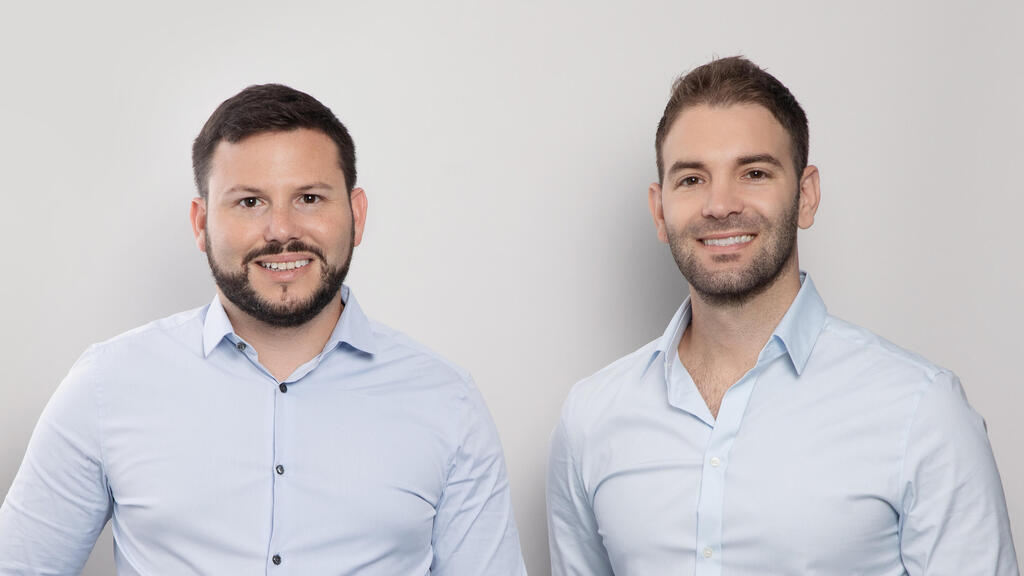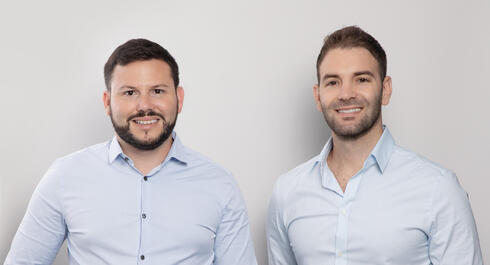
Boarding Pass
VeinWay opens up the path to stop blood clots in underappreciated patients
The company has raised a total of $2.5 million to help patients with chronic venous disease
VeinWay’s entire existence is to improve access to healthcare for patients suffering from chronic venous disease and to provide Interventional Radiologists with the tools they need to open, treat, and be effective healers for underappreciated patients. The company was established under the umbrella of MEDX Xelerator and is tackling the largest clinical unmet need facing interventional radiology today, which revolves around chronic venous disease and how physicians attempt to treat it.
“As you may be already aware, current vein-crossing procedures are challenging, time-consuming, and often result in failure,” explained VeinWay CEO Jordan Pollack. “Even successful procedures typically require multiple expensive tools resulting in a high cost for the hospital. Traversa was developed by VeinWay to address the crossing problem and to provide a ‘one and done’ dedicated tool for rapid, safe, and cost-efficient crossing.”
VeinWay is developing a novel catheter for crossing these chronic blockages in the veins. Traversa is designed to enhance the physician’s ability to safely cross a variety of complicated blockages that are currently uncrossable or difficult to cross, as well as significantly shorten procedure time.
You can learn more about the company below.
Company Name: VeinWay Ltd.
Sector: Healthcare
Product/Service description:
First dedicated sharp venous recanalization device for chronically occluded veins.
Founder Bios:
Jordan Pollack has served as VeinWay’s CEO since its founding in 2020. He has over 10 years of medical device design and engineering experience. He previously worked at Boston Scientific, a major Fortune 200 medical device company in R&D, Quality, Manufacturing, and process engineering. He holds a Bachelor's and Master's in Biomedical Engineering from the University of Michigan and an MBA in Healthcare Innovation from Reichman University.
Ben Friesem joined VeinWay as co-founder and CTO in 2021. He has 10 years of experience in medical device research and development, with a significant track record in medical device innovation. He was the inventor of the ContraBand System by Restore Medical, designing that product from scratch and delivering it to the clinical ready for trial.
Year of Founding: 2020
Last Investment Round: $2.5 million
Last Investment Stage: Seed
Date of Last Investment: March 2023
Total investment to date: $2.5 million
Investors: Boston Scientific, Consensus Business Group, MEDX Ventures, and friends & family.
Current number of employees: 5
Open positions: 1
Website:
www.veinway.com
Social Media:
https://www.linkedin.com/company/veinway-ltd/
How was the idea born?
In short, an unmet need was identified by a major strategic player in the field as strategic to their business – the recanalization of chronic venous occlusions. Boston Scientific is a strategic partner of MEDX Xelerator, which offered me an opportunity to lead the research required for initial development. VeinWay was established under the umbrella of MEDX Xelerator, and the first generation of Traversa, the first dedicated tool for sharp venous recanalization, was designed.
What is the need for the product?
Millions of patients around the globe suffer from chronic venous disease. In fact, up to 10% of the world suffers from some type of chronic venous insufficiency (CVI). One of the most burdensome types of CVI is Post-Thrombotic Syndrome (PTS). PTS starts when a blood clot forms in the deep veins in the legs or arms, known as Deep Vein Thrombosis (DVT). The blood clot forms because of low blood flow, which can occur from long hours of sitting, for example, flying, or with age, smoking, and other risk factors associated with cardiovascular disease. If a DVT clot is not treated within a few weeks, it transforms from a soft thrombus into a hard rubbery scar tissue-like mass.
These fibrotic occlusions look like rubbery-like substances that completely clog the vein. The result is swollen or heavy legs, pain, trouble walking, and skin ulcers. If the blockage isn’t cleared, ulcers may appear and not heal. Though not fatal, it’s extremely painful and disruptive to daily life.
The major challenge facing healthcare providers regarding these blockages in the veins is opening them up, in a procedure where physicians go into the vein with a balloon and stent, similar to opening an arterial blockage.
However, there is a lack of adequate tools on the market for opening up these blockages. Physicians will often spend 4-6 hours attempting to improvise a solution from various devices in their inventory. In up to 10% of cases, physicians even fail to get through blockages, and in cases where despite successfully crossing the occlusion or blockage, they have still expended over six hours and have used upwards of 100 various devices. This is a burden on the healthcare system and on patients who cannot be treated due to a gap in available technology.
How is it changing the market?
The Traversa single-use device is the first tool purposefully built to quickly and reliably create a pathway through fibrotic and collagenous occlusions in veins, shortening the time to cross from over six hours to 30 minutes.
The patented device combines a novel, steerable needle, a custom balloon for stabilizing and centering the device inside the veins, a co-axial catheter system designed for balance, flexibility, and pushability, and a handle with mechanisms for all the relevant features of the catheter. It is used by sequentially inflating the balloon, adjusting the needle angle and radial orientation, advancing the needle, deflating the balloon, and advancing the catheter over the needle. A standard 0.035-inch guidewire is left in the created channel to continue with the standard treatment (balloon & stent).
With Traversa, we are hoping to see not only outcomes improved, but also a significant reduction in procedural time, and a higher rate of success. Our upcoming clinical trials are designed to help support this claim. The potential net result: more interventional radiologists will be able to recanalize occluded veins, allowing more patients to receive treatment, and hospitals will significantly reduce the costs associated with venous recanalization, effectively democratizing the procedure. With democratization comes more procedures, more stents placed, more innovation, and more large companies aiming to join the market.
How big is the market for the product and who are its main customers?
Venous Chronic Total Occlusion (CTO) is an emerging market. By commercializing the first dedicated tool for crossing CTOs in veins, we are aiming to jumpstart the market, similarly to how coronary CTO crossing devices impacted coronary interventions 15 years ago: in 2004, CTO devices were used in <1% of all coronary interventions and the market was valued at $19 million; the first devices to hit the market could sell for as high as $1,500 because there was a real need for dedicated CTO crossing devices; by 2011, the market had grown to $355 million, and by 2019 it had reached maturity at $500 million \[Life Science Intelligence; Health Research International\].
As of 2021, only around 80,500 venous stents were placed worldwide. With more advanced crossing tools such as the Traversa, more patients would be able to receive treatment. Assuming a similar growth in the venous CTO device space as in the coronary space between 2004-2011 (52% CAGR), the venous CTO market could be worth upwards of $300 million by 2028. The Total addressable market (TAM) based on over 1.7 million Post Thrombotic Syndrome (PTS) patients worldwide is >$1.3 billion.
The main customers are interventional radiologists and vascular surgeons who perform venous interventions via their hospital purchasing systems.
Does the product exist already? If not - at what stage is it and when is it expected to hit the market?
Yes, but not yet for commercial sale. Currently, Traversa has been used in clinical cases with compassionate use exemptions and will be part of a more formal clinical trial starting in October 2023. We expect to submit for FDA and EU MDR approval in late 2024 and 2025, respectively.
Who are the main competitors in this sector and how big are they?
- Baylis Medical – RF PowerWire
- Cook Medical – TriForce Peripheral Crossing Set
- Terumo – Glidewire
Traversa’s advantage over the competition is that it is the first tool dedicated to crossing CVOs; specifically designed for the unique challenges of venous interventions and the pathophysiology associated with PTS.
What is the added value that the founders bring to the company and the product?
VeinWay was founded in 2020. Since then, the company has received €1.4 million in grants from the Israeli Innovation Authority and in 2021 placed in the top 3 of the prestigious 2021 Dong Sheng International Science Park Competition.
Additional members of the team include R&D Engineers S. Ciner and G. Abitbol, VP of Quality/Clinical Y. Eshel, and Regulatory Expert S. Friedman.
What will the money coming in from the round be used for?
The main expenses of this round will cover the costs of first-in-human, 30-patient clinical trial, FDA and EU MDR submissions and approvals, office space, travel, and the beginning stages of commercialization and ramp-up.
In the "Startup Boarding Pass" section, CTech will cover the (relatively) small investments made in companies during the early stages of their existence - and the entrepreneurs and startups who have not yet had the opportunity to reveal their stories to the world. Please use the linked form and fill it out according to the guidelines. This form is intended for startups raising between $500,000 and $3 million from venture capital funds, angels, or official grants from Israeli and foreign institutions. If relevant, someone at CTech will be in touch for follow-up questions.
